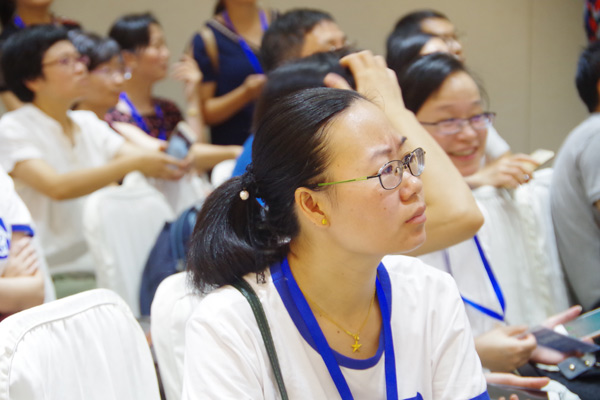Strength in numbers
By Xing Wen | China Daily | Updated: 2018-08-15 09:08

"Children are in need of an extra class that can improve their logical thinking skills. The puzzle is an alternative avenue for them," says Xu, adding that further cooperation with schools is underway.
Will Shortz, chairman of World Puzzle Federation, says it was impressive to see China develop children from a very young age to solve Sudoku puzzles and become enthusiasts, especially given their outstanding performances in both team and individual events at the WSC in recent years.
"Our mission is to increase the interest of people around the world in intelligent puzzles and bring puzzle lovers together socially," says the chairman. "That's happening here, as this event has a much bigger base than any other country."
"The players get younger," Xu says, recalling that when she attended the WSC in 2007, she was 36 years old and the only juvenile player in the national team was 15 years old. Last year, however, the average age of the members of the national team was just 17.
"In many domestic Sudoku events, the under-8 group usually turns out to be the largest one," Xu says.
Luan Xiaozhou, a Sudoku teacher from Dalian, says the main appeal of the intellectual game is that it is accessible to most people because it does not require any formal education or linguistic ability and needs only a small amount of mathematical skill.
"It's a good pastime for the whole family," he says. "What we gain from figuring out the fastest way to complete the puzzle is how to become better problem solvers."
Luan encourages his followers to attend domestic and overseas Sudoku events, as these provide young Sudoku players a platform to flex their muscles, test themselves and learn from their role models.
























